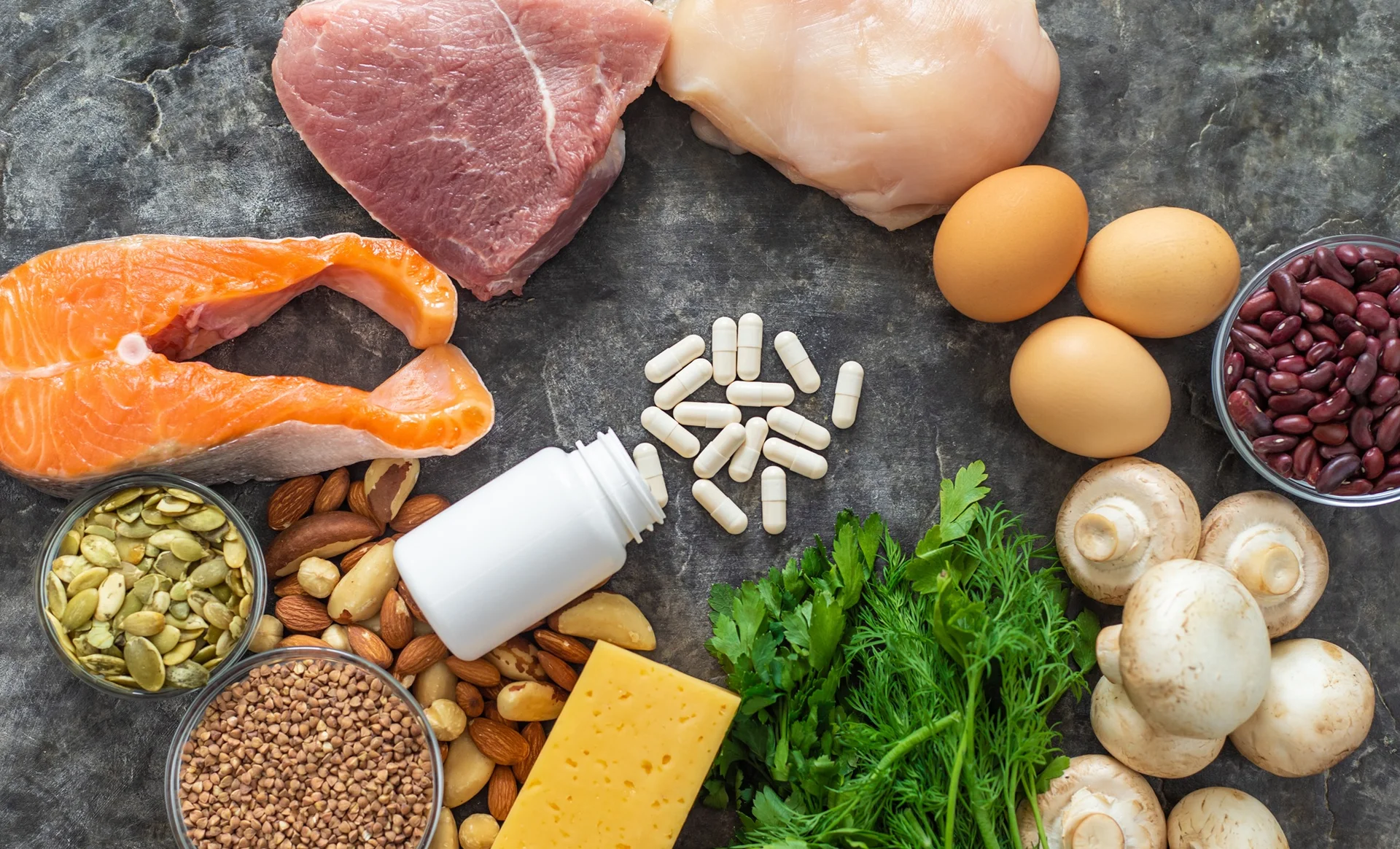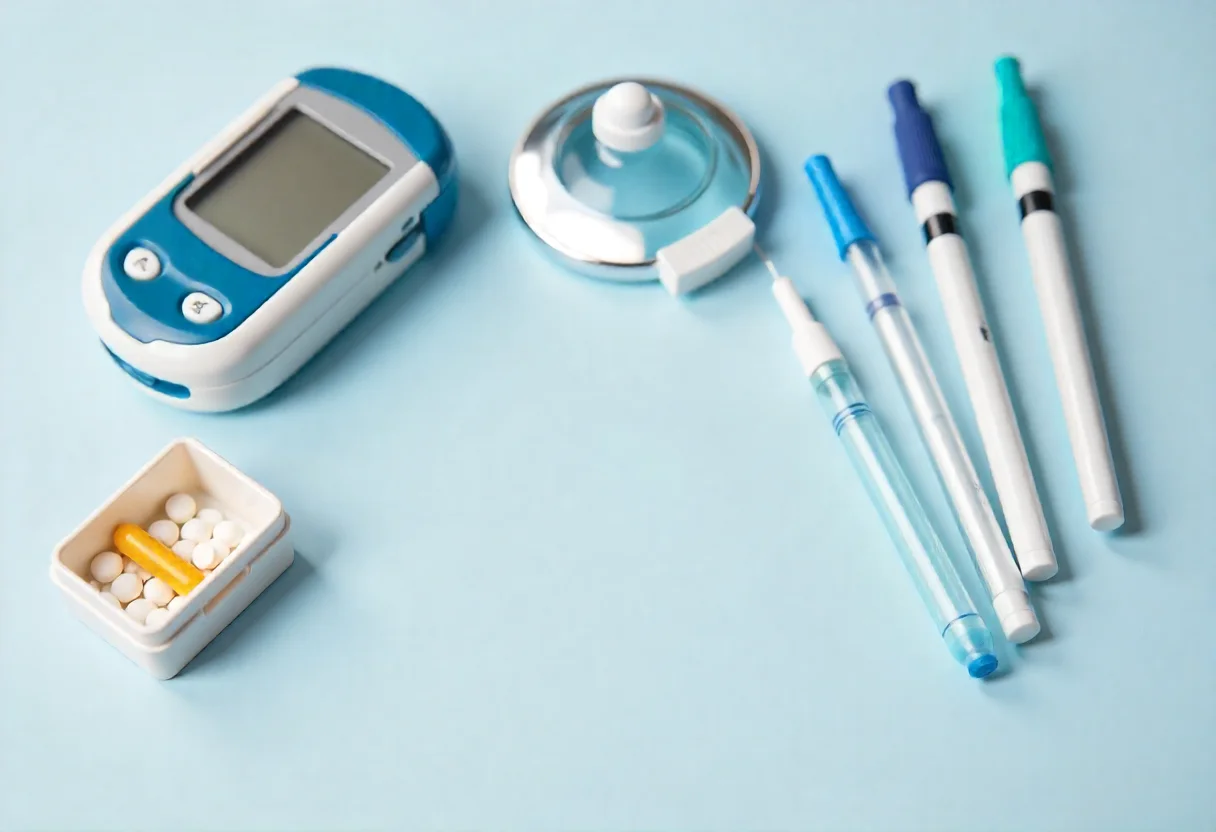
The benefits of B vitamins are diverse, as each vitamin has a unique function that contributes to overall health. Here are the key benefits:
- Supports energy production
- Maintains nervous system health
- Contributes to red blood cell formation
- Supports the health of skin, hair, and nails
- Strengthens the immune system
- Promotes heart health
- Aids in cell regeneration and DNA synthesis
Since B vitamins are not stored in the body, they must be regularly obtained through food or supplements when necessary. A deficiency can lead to serious health problems.
- B1 (Thiamine)
- B2 (Riboflavin)
- B3 (Niacin)
- B5 (Pantothenic Acid)
- B6 (Pyridoxine)
- B7 (Biotin)
- B9 (Folic Acid, Folate)
- B12 (Cobalamin)
The main foods that contain B vitamins:
- Whole grains (oats, brown rice, whole wheat bread)
- Legumes (lentils, chickpeas, beans)
- Green leafy vegetables (spinach, broccoli, lettuce, arugula)
- Nuts and seeds (almonds, hazelnuts, sunflower seeds)
- Milk and dairy products (cheese, yogurt)
- Eggs (especially the yolk)
- Meat products (red meat, chicken, turkey)
- Liver
- Fish and seafood (salmon, tuna)
- Mushrooms
- Avocado
- Citrus fruits like oranges and lemons
- Soybeans and soy products
Vitamin B deficiency can affect many systems in the body, and the symptoms may vary depending on the specific type of B vitamin that is lacking. The most common general symptoms include:
- Fatigue and weakness
- Loss of appetite
- Mouth sores and swollen tongue (glossitis)
- Dry skin, rashes, or cracks
- Depression, anxiety, and memory problems
- Nerve damage and loss of sensation (especially in B1, B6, and B12 deficiencies)
- Muscle weakness and coordination problems
- Dizziness and difficulty concentrating
- Tingling or numbness in hands and feet
- Anemia
- Blurred vision
- Growth retardation in children
If these symptoms persist for a long time, it is recommended to consult a healthcare professional and have blood tests to check vitamin levels. Early diagnosis is especially important, as deficiencies in B12 and folic acid can lead to serious health problems.
When should vitamin B supplements be taken?
- Vitamin B supplements are generally taken in the morning or at noon, with or without food.
Can vitamin B be used during pregnancy?
- Yes, especially B9 (folic acid) must be taken during pregnancy for the healthy development of the baby.
Is vitamin B12 found only in animal sources?
- Yes, B12 is naturally found only in animal products; vegetarians or vegans should take supplements.
Is vitamin B good for skin and hair health?
- Yes, especially B7 (biotin) and B2 support the health of the skin, hair, and nails.
Does vitamin B cause weight gain?
- No, it does not directly cause weight gain; it supports metabolism and increases energy production.
Allen LH, Vitamin B-12. (2012).
Bunaciu AA, et al., FT-IR Spectrophotometric Analysis of Ascorbic Acid and Biotin and their Pharmaceutical Formulations. (2009).
Meyer-Ficca M and Kirkland JB, Niacin. (2016).
Mrowicka M, et al., The importance of thiamine (vitamin B1) in humans. (2023).
Pawlak R, Is Vitamin B<sub>12</sub> Deficiency a Risk Factor for Cardiovascular Disease in Vegetarians? (2015).
Pinto JT and Zempleni J, Riboflavin. (2016).
Prabhu D, Dawe RS, and Mponda K, Pellagra a review exploring causes and mechanisms, including isoniazid‐induced pellagra. (2021).
Smith AD, et al., Homocysteine and Dementia: An International Consensus Statement. (2018).
Stover PJ and Field MS, Vitamin B-6. (2015).
Thakur K, et al., Riboflavin and health: A review of recent human research. (2017).















